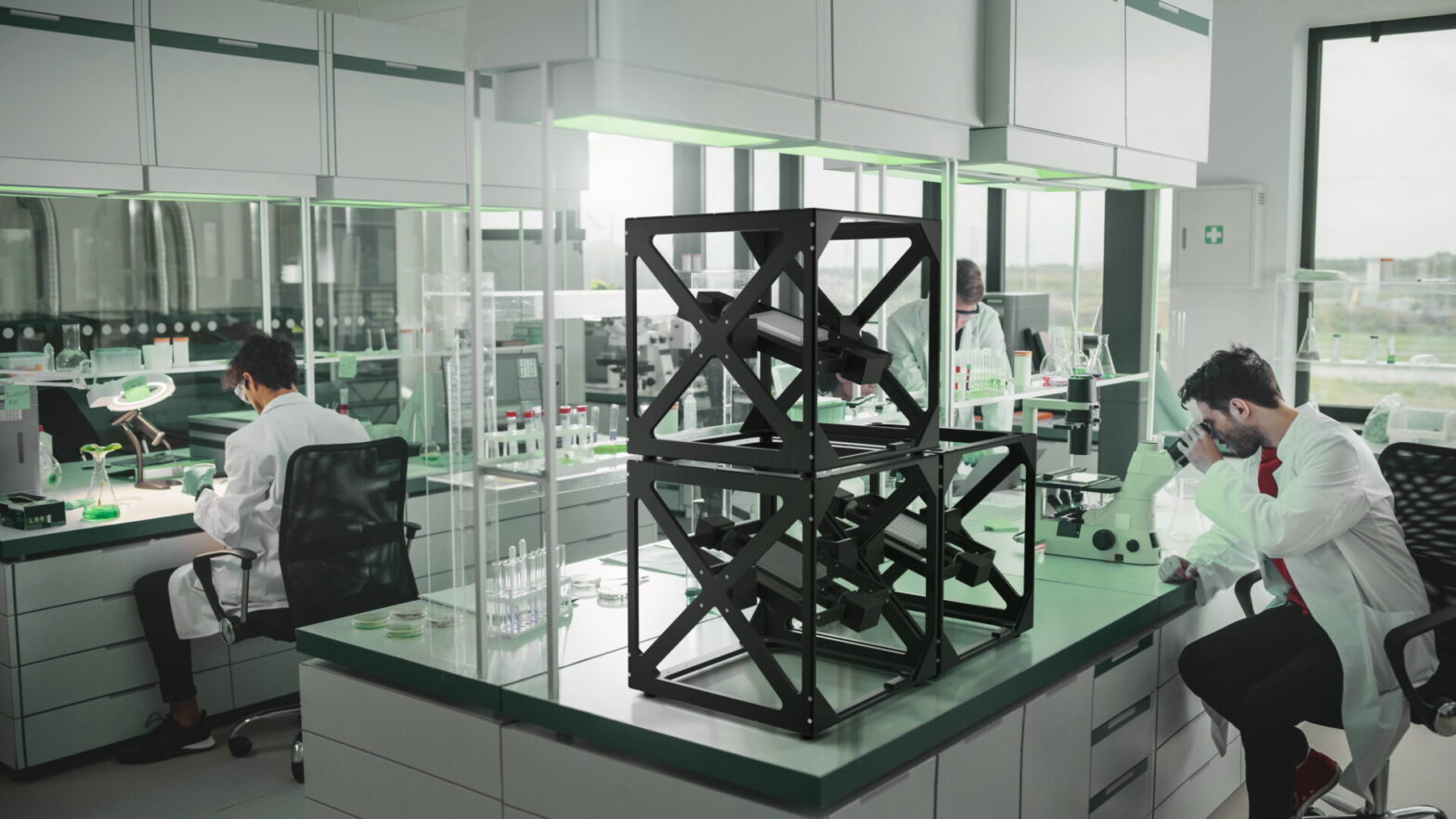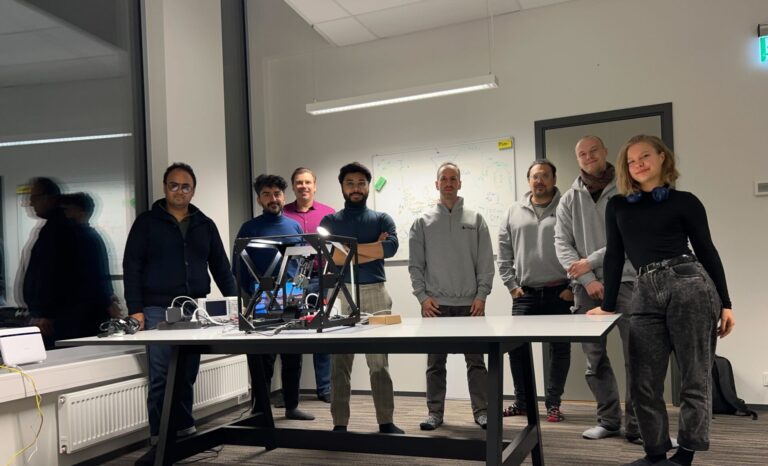02.05.2025
Startup Story: Litegrav x ESA BIC Estonia

Litegrav is pioneering a new approach to biological innovation by utilizing the unique conditions of space environments, such as microgravity. These extreme environments offer powerful opportunities to optimize biological processes — from fine-tuning disease and aging models to improving the structural quality of cells. Litegrav’s intelligent bioreactor system enables systematic testing and development of new therapies, specialized cell types, and resilient agricultural plants and microbes – on ground.
The company was founded by Patrik Hollós, PhD in neurobiology, who has a strong background at the intersection of academia and industry, spanning research commercialization, biotech venture capital due diligence, and innovation advisory. Litegrav’s growing team of eight experts combines competencies in computer engineering, mathematics, bioengineering, and business development, bringing together both scientific excellence and industry experience.
Litegrav is an alumnus of the ESA BIC Estonia programme, and Patrik Hollós shared some insights into the company’s activities.
What inspired you to launch a space tech startup?
My own research. I have been facing the problem that we had a possible therapeutic finding that needed to be tested and optimized in space-like conditions, but solutions were very limited and expensive. When we started to talk to industry, we realized that everyone sees the big potential, but no one had progress with current systems.
What have been your biggest challenges and failures so far, and what are your biggest wins?
The biggest challenge is also the biggest win: We developed a platform, so it can be really used for many verticals. The challenge is that we do not get sidetracked and stay laser-focused on use cases where we see both solid proof of concept evidence and commercial opportunity. Failures come through learning, what I mean is that I realize an action is failure sometimes years later. This mainly relates to some hard go/no-go decisions regarding development and focus. Also, a big win that we are getting more recognized internationally, and able to partner with companies like the Korean pharma company Boryung, or working with a NASA GeneLab group to predict and optimize biology experiment outcomes from the SpaceX FRAM2 mission that might translate to dual-use medicines.
What drives you to keep going, even on tough days?
My family and ability to recall what “gut feeling” means. Most successful decisions in my life were a combination of analysis and gut feeling, and if I look at our vision, I get the gut feeling that we are on the right path. Some acceptance that the “baseline” of a startup is just heavy waves, can help too.

What sets your startup apart from competitors in the space industry?
Although our underlying technology comes from space and simulated space environments, we are truly Earth-focused and “Earth biology” focused. We exploit findings and artefacts that are often found in replicating space biology conditions. We find “space” in Earthy processes where no one was looking for “space”.
Why did you choose to apply to ESA BIC Estonia?
Our project’s academic R&D roots were in Finland. We decided to apply for ESA BIC Estonia as the funding scheme looked more straightforward and we also heard good things about some rapid prototyping capabilities. This turned out to be true, although we had to iterate a lot; focusing on doing and building right from the start helped a lot.
What’s your vision for your startup in the next year? And where do you see it in five years?
We are now in the process to get some large industry names with us to be the first choice for their testing. This includes large consortia building next-generation space stations for biotech and material science discovery to benefit both Earth and future deep space explorations.
Who do you think is the next (Estonian) space tech unicorn?
Too early to tell. Also, we need more bolder space tech ideas to bloom — the talent is around, the money and global situation not so much at the moment.
Which books, podcasts, publications, and influencers in space technology or entrepreneurship do you follow and recommend to others?
Spaceinsider is probably well known and they do a lot of good reports. I’m happy to receive book and podcast recommendations about spacetech. The influencer space is probably noisy, I think after a while everyone can filter people who disseminate relevant info to their fields.
What advice would you give to the future candidates?
Just go for it, and come in also with quantum, mining, materials science, biotech, propulsion, payload return — spacetech is not just satellite data.
ESA BIC Estonia, led by Tartu Science Park in collaboration with Tehnopol, is part of the European Space Agency’s network of business incubators across Europe. It helps innovative Estonian startups bring space technologies to new markets, offering up to 60,000€ in product development support, specialised mentoring, international network access, and business development loans.
If you are working on a space-related innovation, the current application round is open until May 8th! Learn more here https://www.esabic.ee.

















